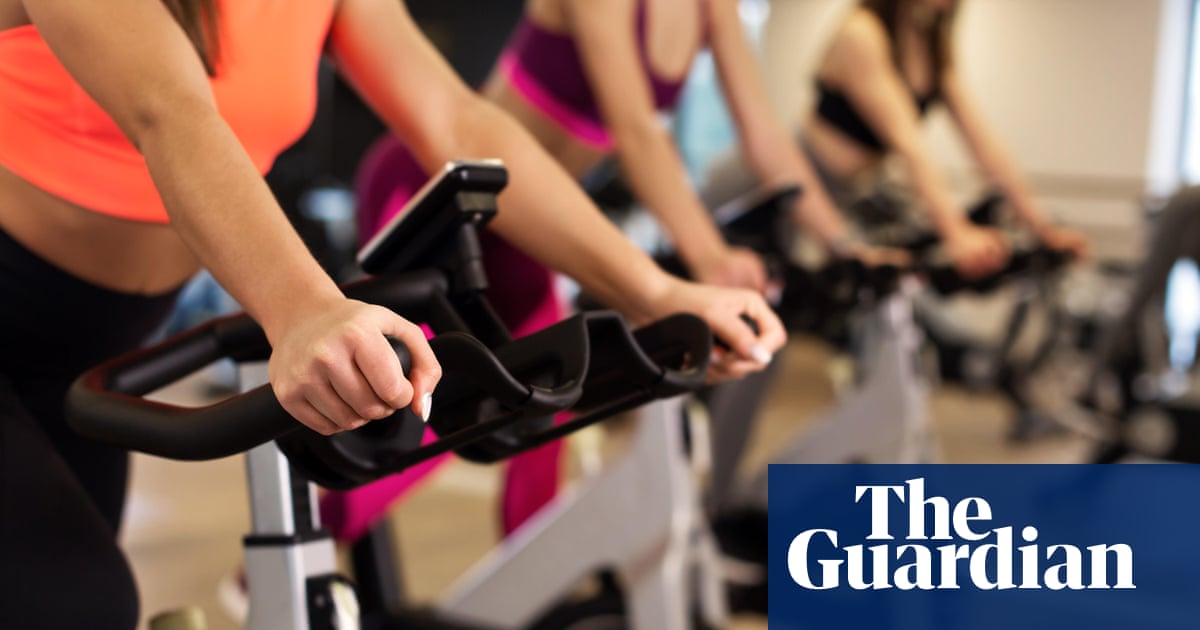If your sessions at the gym seem to drag on for hours, you are in good company. People who push themselves when working out report a form of time warp, making it feel as if they have been exercising for longer than they have, researchers say.
Adults who took part in 4km cycling trials on exercise bikes perceived time to have slowed down, scientists said, with the cyclists underestimating how long they had been pedalling for by about 10%.
The finding suggests people who are trying to improve their fitness might feel their workouts are shorter and more enjoyable if they are distracted from the intensity of the activity by listening to music or training in a more competitive setting.
“People perceive time as moving more slowly during exercise,” said Andrew Edwards, a professor of psychology at Canterbury Christ Church University in Kent, and the first author on the study. “This distortion may affect pacing and the enjoyment of physical activity.”
In the study, 33 physically active adults took part in three cycling trials on an exercise bike. Before, during and after the trial, they were asked to estimate a time period of 30 seconds. The first trial was performed solo. The second was accompanied by a virtual avatar on the bike’s screen. And on the third trial, they were told to beat the virtual opponent.
Writing in Brain and Behaviour, the researchers described how time appeared to run slow when people were exercising but not before or after. The effect was the same across the trials, suggesting the virtual opponent had no noticeable impact.
The time warp does not seem to be specific to cycling, but linked to the intensity of the exercise or how uncomfortable it feels, Edwards said. What drives the shift in time perception is not clear, but he believes that at high intensities, exercise makes the body more aware of the pain it is enduring, making the duration feel longer.
“Exercise, particularly hard exercise, increases focus on the body, creating a heightened awareness of each moment,” he said. “That makes time feel like it’s dragging.”
The researchers compared the effect to Einstein’s special theory of relativity, which said time was not absolute and depended on the observer’s frame of reference. In 1929, Einstein was claimed to have said: “When you sit with a nice girl for two hours you think it’s only a minute, but when you sit on a hot stove for a minute you think it’s two hours. That’s relativity.”
“This study is the first to experimentally demonstrate that time and relativity can be demonstrated through the medium of exercise … showing that time is distorted,” the authors wrote.
The intensity of the exercise may not be the only factor. In follow-up research on professional footballers, Edwards found that training sessions involving a football seemed to pass more quickly than cardio training and video analysis sessions.
“If time feels slower, workouts may feel longer and less enjoyable. Making exercise more engaging could help people stick with it,” Edwards said. “Repetitive or unenjoyable exercise might enhance this time-slowing effect, while distractions or enjoyment might reduce it.”





